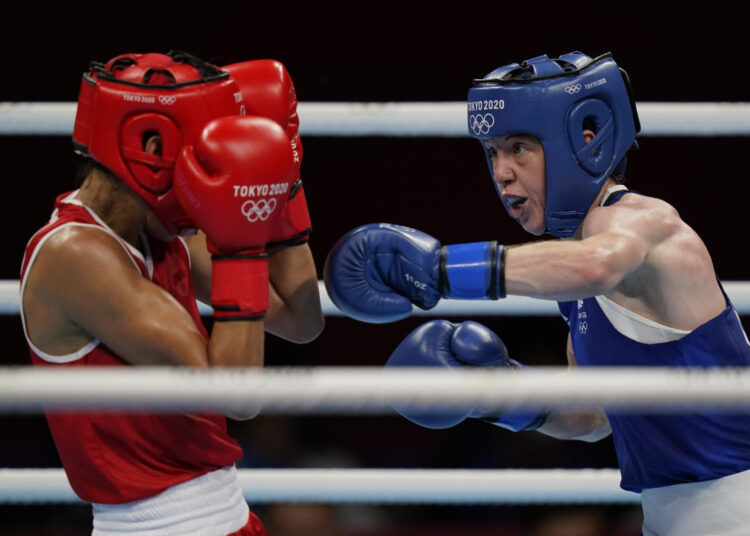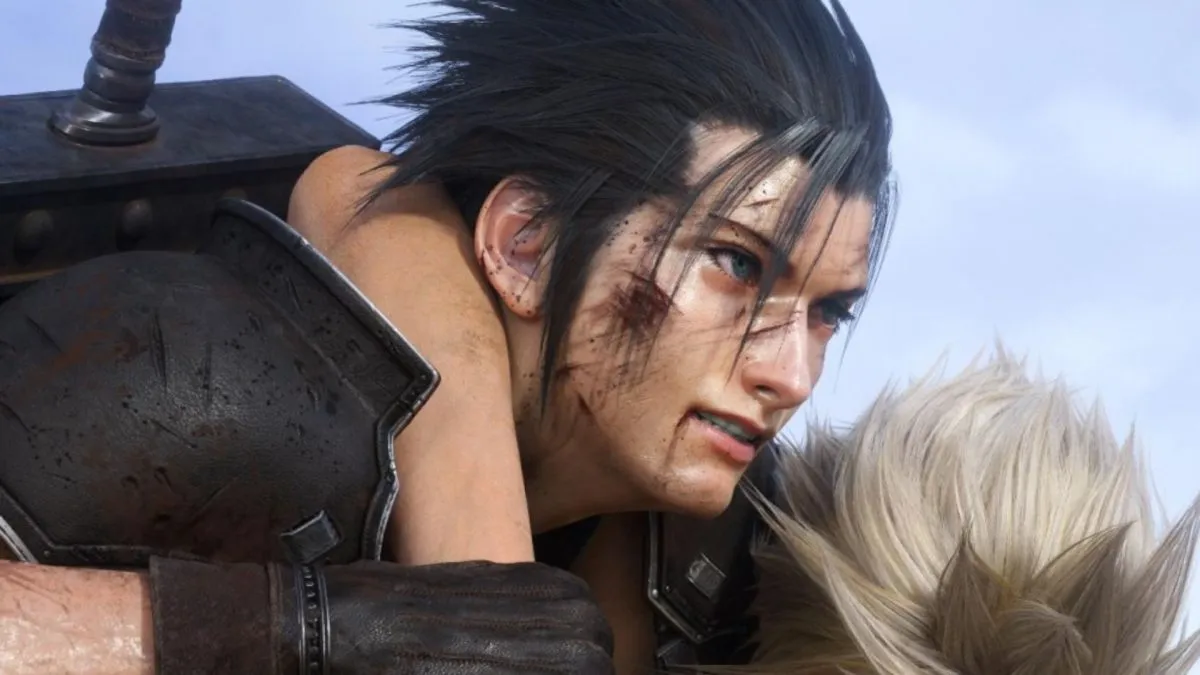PUEBLO, Colo. (AP) — Charley Davison’s husband and their three young children were already in bed back home on the east coast of England before she pulled on her headgear and stepped into the World Boxing ring in southern Colorado earlier this year.
The 30-year-old Davison was able to pursue her Olympic dreams half a world away from her family only because of the spectacular growth of women’s boxing.
In just over a decade, the sport has proliferated from its Olympic debut with only 36 fighters in three weight classes in London to become an equal part of the tournament in Paris, where half of the 248-fighter field will be women competing in a record six weight classes. The addition of a 54-kilogram bantamweight division at the Paris Olympics changed the game for fighters like Davison.
“After the Tokyo Olympics, if there wasn’t going to be a 54 (division), I would have hung my gloves up,” said Davison, a former youth champion who left boxing for seven years before returning to get in shape after having kids.
“Because 51 (kilos) was getting too hard, and 57, I’m not quite big enough for that one, I feel,” she added. “So 54 was a blessing. As soon as I heard that weight, I knew it was for me. Every kilo makes a difference. I know I’m not the only one who’s grateful. I think it’s ideal for a lot of women to have this many weight classes. It makes such a difference for the sport.”
Davison fought for Britain in Tokyo, but lost early. Three years later, she has the opportunity to try again only because of the IOC’s commitment to the sport’s growth. Boxing essentially has reached gender parity along with the rest of the Olympic program, and dozens more women are getting a shot.
“Since I’ve started, especially on the international level, the level (of women’s boxing) has raised incredibly,” said Canada’s Tammara Thibeault, the middleweight world champion and an Olympic quarterfinalist in Tokyo headed to her second Games. “That makes us all better, because we elevate each other. That’s how a sport grows, and we’re really growing right now.”
Women’s boxing entranced athletes like Australia’s Tiana Echegaray, who had never boxed just five years ago. She was 25 and working at a boring office job in the music business in Sydney when she threw herself into training — and now she’s an Olympian.
“I think maybe the creative side of me saw boxing as an art,” said Echegaray, who studied music. “It’s really pretty, you know? When you see really skilled boxers compete, it’s the prettiest thing I’ve ever seen. It’s so cool to watch.
“It’s not just the sport itself, but the community around the sport,” she added. “It’s the people. Boxing teaches you so much about life. I’m so grateful that I found it now. I think I would have loved to have found it younger, but I don’t think I would have had the emotional maturity to get punched in the face and be all right with it.”
Britain’s Chantelle Reid was a teenage pugilism prodigy who returned this year after a lengthy break. She was bowled over by the sport’s growth in her absence.
“The level in women’s boxing has increased massively in the six years” since her return, Reid said. “There’s so much talent out there now. It just makes me push a little bit harder to be on top. It’s exciting. … Sport science has come into the sport a lot, and everyone is just much more strong. They’ve all got that grit, whereas before it was more point-fighting boxing. No one really had that grit, but I’m seeing that a lot now.”
Reid is among the many fighters in the Paris field who got hooked when they watched the inaugural women’s boxing competition in London as girls.
“(Gold medalist) Nicola Adams and Katie Taylor, they’ve set a high standard now,” Reid said. “They’ve set an amazing example for women’s boxing. We’re just trying to reach that level now, and hopefully the next generation is that much better.”
Indeed, women’s boxing has changed dramatically in the 12 years since its Olympic debut in London — and not just on the amateur level.
The women’s sport spent decades as a professional sideshow, with its fighters being paid a fraction of the men’s purses and given a fraction of the respect. Although it hasn’t reached the worldwide prominence of the men’s sport, pro boxing is now a viable career path for hundreds of women in a way it never was before the Olympic tournaments sparked fan interest and tantalized top promoters.
On the first Saturday of the Olympics, two-time gold medalist Claressa Shields’ WBC heavyweight title fight will headline a card in Detroit. On the second Saturday, Britain’s Caroline Dubois and Uruguay’s Maira Moneo will headline a show in England.
And while gold medal-winning boxers like Shields and Katie Taylor have gone on to profitable pro careers, the Olympics still mean more in the women’s sport than in the men’s version, thanks to declining interest from many top men’s prospects — and the decrease in Olympic opportunities inadvertently caused by the growth of the women’s sport, since the IOC has added women by cutting spots for men.
In fact, the rise of women’s boxing might even save the entire sport from Olympic oblivion.
The IOC has not included boxing on the preliminary program for the Los Angeles Olympics after suspending and then banishing the sport’s beleaguered governing body, the International Boxing Association, following years of conflicts. Boxing won’t be in the 2028 Games without a new governing body in place by 2025, according to the IOC.
World Boxing, a breakaway governing body started by several Western nations with members worldwide, is gaining traction. But even if it doesn’t manage to supplant the IBA by next year, the IOC could be reluctant to get rid of this troublesome, somewhat regressive sport partly because it would mean dropping more than 100 women from the Olympic program just 16 years after the gender barrier was broken.
Until their Olympic fate is decided, women will continue to spur growth and opportunity in an ancient Olympic sport with a modern second life.
“I think it’s fantastic,” USA Boxing head coach Billy Walsh said. “The sport is growing. Every day you see more women in the sport, and so many are winning and being good role models. We’re going to have even more.”
___
AP Summer Olympics: https://apnews.com/hub/2024-paris-olympic-games
Read the full article here


























